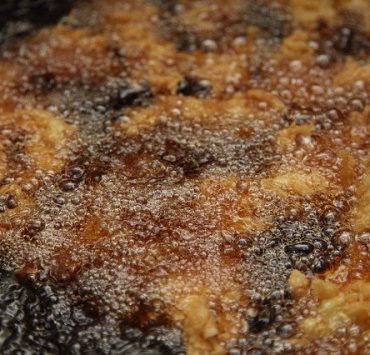Face masks and face shields have become prominent in our “new normal” outfits, especially since everyone is required to wear both when venturing outside their homes. Incorporating these items into our daily life has prompted some people to look for ways to modify them based on their needs, or even their style. In fact, we’ve written about many creative face masks, including chicken and bacon-scented ones and those that have beautiful locally-made embroidery.
Still, we need to remember not to compromise our health for the sake of fashion or trends. Last year, the Food and Drug Administration advised against using face masks with valves at the height of their popularity among people who felt inconvenienced by the humid and exhalation-restricting nature of regular face masks.
[READ: FDA doesn’t advise using face masks with valves. Here’s why]This time, face masks made with infused copper strands are becoming a trend due to its reported antimicrobial properties. But news flash: Copper face masks aren’t some sort of invincible shield against COVID-19.
A Makati Medical Center advisory posted online showed that copper face masks are among the personal protective equipment not allowed in the hospital’s premises. It is listed along with face masks with valves and tinted face shields.
In a Facebook post, the hospital’s team wrote, “MakatiMed’s Infection Prevention & Control recommends the use of secure-fit face masks without valves, slits or holes for the safety and wellness of its patients, guests and healthcare workers while inside the hospital.”
As shown on the poster, copper face masks have an opening at the bottom chin area—a gaping hole that may serve as an entryway or exit point for the virus. One can touch that area with potentially contaminated hands, which may ultimately defeat the purpose of wearing a face mask.
The non-governmental organization Philippine College of Physicians mirrors the same concern on a Facebook post, where they wrote, “Face mask should cover your face from the bridge of your nose to under the chin. Masks with vents or exhalation valves are not advised because they allow the unfiltered breath to escape the mask.”
Don’t get us wrong: Copper has properties that make it an antibacterial, antifungal and antiviral agent. It has been found to help limit the spread of E. coli, salmonella and influenza virus, and registered public health claims show that antimicrobial copper alloys continuously reduce bacterial contamination. These appear to be linked to copper’s oxidative behavior.
While a study in the New England Journal of Medicine does show that the coronavirus stays the shortest on copper surfaces compared to stainless steel or plastic, it should be noted that such findings were only observed under controlled laboratory conditions. Experts remind us that not everything that works in a laboratory would “necessarily pass muster in the real world.”
First things first: Not all copper-infused face masks are the same. Some may have inadequate degrees of infused copper to actually stand against the virus, and some are even outright fake copper masks. Durability can also be an issue especially for those who reuse their face masks. According to experts, common household cleaners formulated with compounds that could strip copper ions off a protective surface may render a copper-infused face mask’s properties useless after several rewashes. Copper’s effects aren’t instantaneous either, which means the virus can still exist on a copper surface.
In a statement, the Department of Health (DOH) also mentioned that the face masks are not approved as medical-grade by the Food and Drug Administration (FDA). “FDA has released advisory 2020-1181 which has the list of FDA notified medical face masks. In the said list, the copper mask is not included which means that they are not medical-grade,” said DOH.
Just like face shields, copper face masks alone can’t protect us from the virus. While copper has promising properties, there isn’t enough medical evidence that shows they make a big difference versus regular face masks. Both only serve the purpose of preventing someone from spreading their own germs or coming in direct contact with other people’s germs. “Considering that it is still a face mask, it can still prevent the spread of COVID-19 mainly by acting as a physical barrier for droplets when a person emits droplets,” said DOH.
So, if you’ve been planning on splurging on copper-infused face masks just because you think it’d protect you better against the virus, you might want to think twice.




